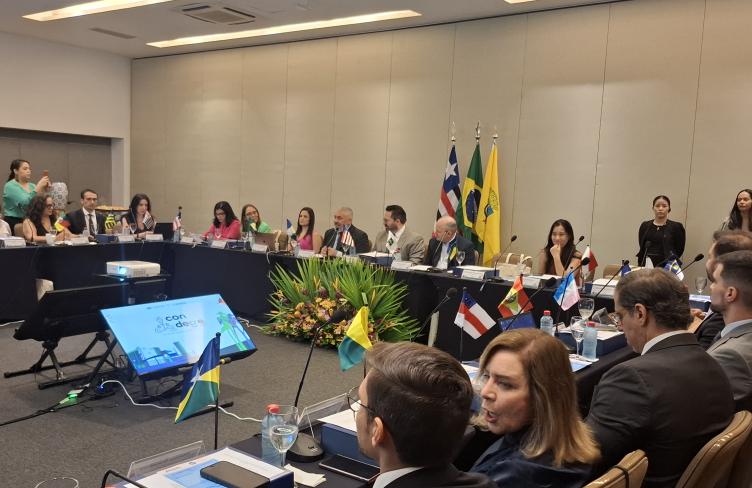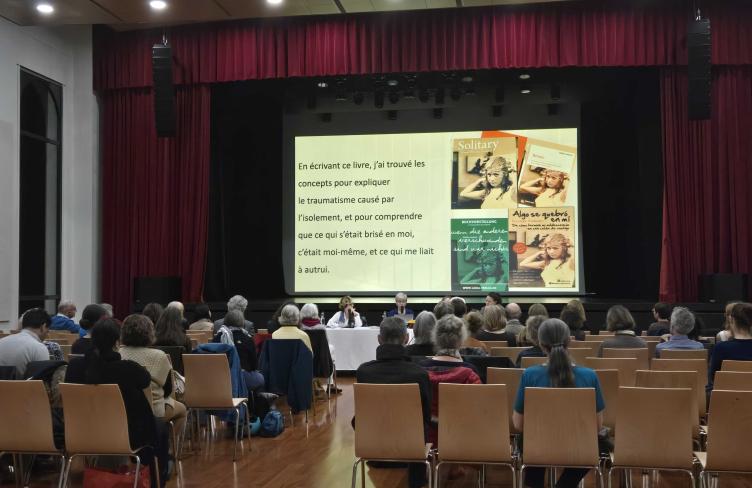
Sharing strategies to ensure that detention safeguards are respected in practice during the first hours of police custody was the focus of a two-day expert workshop to support independent monitoring bodies in South-East Europe.
More than forty representatives from 13 National Preventive Mechanisms (NPMs)* in the region took part in the online workshop.
The discussions also included representatives from three NPMs from neighbouring regions*, as well as experts from the Council of Europe’s Committee for the Prevention of Torture (CPT) and the UN Subcommittee on the Prevention of Torture (SPT).
“We know the first hours of detention place people deprived of liberty at the greatest risk of torture and ill-treatment,” said Audrey Olivier Muralt, APT Deputy Secretary General.
“Through their monitoring work, NPMs play a critical role to prevent torture by ensuring that safeguards to protect people deprived of liberty - such as the right to legal counsel, to have a family member notified, and to independent medical examinations – are respected in practice,” she said.
“It was an opportunity to exchange experiences and good practices, mostly during inspections, with an emphasis on data and information collection.”
Lora Vidović
Ombudswoman of Croatia
Over the two days, participants discussed a range of practical topics, including:
- Planning and conducting visits to police stations and pre-trial detention facilities, including the composition of monitoring teams, when visits will take place, and ensuring a geographical diversity of facilities visited
- Types of information to be gathered (e.g. video surveillance, medical reports, media reports), methods for gathering information and triangulation of the information
- Conducting interviews with detainees and officers from relevant authorities
- Collecting and analysing quantitative data
- Collaboration with other stakeholders, such as civil society organisations and legal associations.
By collecting, triangulating and analysing information from a variety of sources, NPMs can assess the extent to which procedural safeguards are implemented during the first hours of custody and identify steps that can be taken to strengthen these safeguards in practice.
The Ombudswoman of Croatia, Lora Vidović, noted that the recommendations made by NPMs were essential for building an effective system to prevent torture and ill-treatment.
“It is necessary that our recommendations are based on a constructive dialogue with the authorities and regular and systematic monitoring of places of detention,” Ms Vidović said.
Monitoring the implementation of detention safeguards is absolutely crucial to prevention of torture and ill-treatment – but it goes beyond simply monitoring police stations, Ms Olivier Muralt said.
“It is about knowing whether, in practice, persons deprived of their liberty have been informed of their rights, been examined by a doctor or been able to interact with a lawyer. And this requires a completely different approach to monitoring,” she said.
“There were many excellent ideas and strategies shared during the workshop to support NPMs gather this information and, through their monitoring work, ensure that any person detained has their rights respected upon apprehension."
The workshop – held on 12-13 October 2020 – was jointly convened by the APT, the South-East European (SEE) NPM Network, the Ombudsman of the Republic of Croatia and the Ludwig Boltzmann Institute of Fundamental and Human Rights.
* Members of the SEE-NPM Network that participated in the workshop included Albania, Armenia, Austria, Bosnia and Herzegovina, Croatia (currently SEE-NPM Network Chairperson), Czech Republic, Greece, Hungary, Montenegro, North Macedonia, Romania, Serbia and Slovenia.
** The NPMs of Morocco, Tunisia and Turkey.


